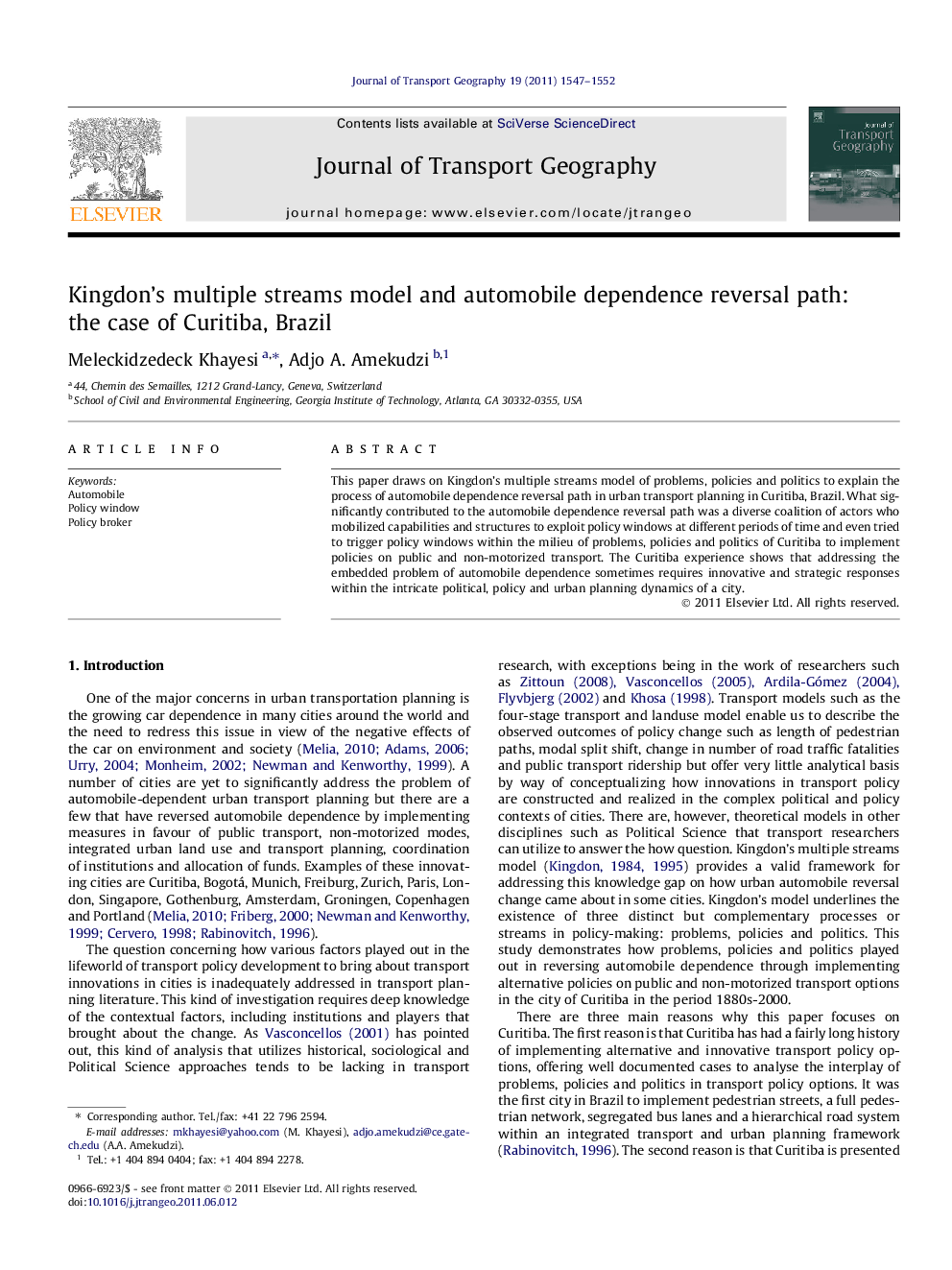| Article ID | Journal | Published Year | Pages | File Type |
|---|---|---|---|---|
| 1059605 | Journal of Transport Geography | 2011 | 6 Pages |
This paper draws on Kingdon’s multiple streams model of problems, policies and politics to explain the process of automobile dependence reversal path in urban transport planning in Curitiba, Brazil. What significantly contributed to the automobile dependence reversal path was a diverse coalition of actors who mobilized capabilities and structures to exploit policy windows at different periods of time and even tried to trigger policy windows within the milieu of problems, policies and politics of Curitiba to implement policies on public and non-motorized transport. The Curitiba experience shows that addressing the embedded problem of automobile dependence sometimes requires innovative and strategic responses within the intricate political, policy and urban planning dynamics of a city.
► We examine how alternative policy options to automobile dependence were developed in Curitiba. ► A diverse coalition of actors mobilized capabilities and structures to exploit policy windows at different periods of time. ► Reversing automobile dependence sometimes requires innovative responses.
